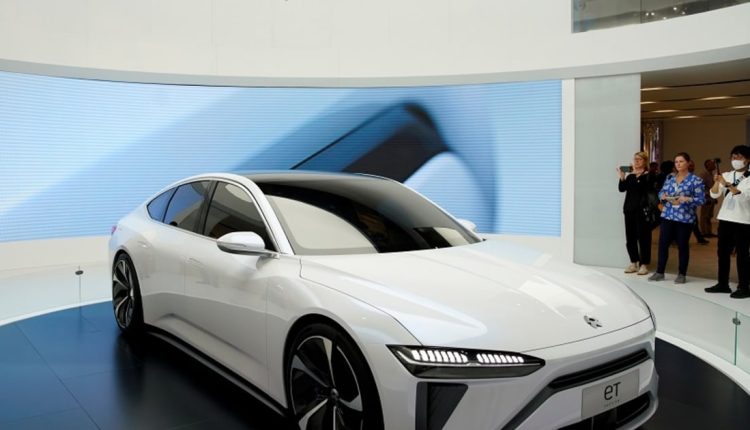SHANGHAI — Chinese electric-vehicle maker Nio plans to build a factory to produce budget EVs under a new brand for export to Europe from as early as next year, three people with knowledge of the matter said.
The plan to broaden the company’s lineup and expand overseas sales comes as EV sales sharply weaken in China, the world’s largest auto market, following an end in state subsidies for EV purchases.
Nio has been planning to launch more affordable EV products under new brand names after 2024 as part of projects codenamed “Firefly” and “Alps,” according to the people, who declined to be named as the discussions are private.
The new factory will be built in Chuzhou city in eastern China’s Anhui province, they said, adding that the plant will make cars, developed under project “Firefly,” which Nio wants to export to Europe where customers prefer small-sized vehicles.
Nio already has two car assembly plants in Anhui’s provincial capital, Hefei city.
The automaker’s prices in Europe range from around 50,000 euros ($53,265) to 91,000 euros, depending on the vehicle’s range and whether customers buy or rent the battery.
The company did not immediately respond to a request for comment. An official at the Chuzhou Economic and Technology Development Zone, where the Nio plant is to be located, declined to comment.
Chinese media outlet Cailianshe first reported about the development.
Chinese EV players, most of which are still losing money, are ramping up efforts to increase their market share, as the usage of EVs rises rapidly in China, where more than a quarter of the new cars sold in January were either full-electric or plug-in hybrids.
While Tesla relies on two models for the majority of its sales in China, a strategy that helped keep costs under control, many Chinese brands offer more models to appeal to a wider consumer base.
Nio offers six models and plans to launch five more this year under the Nio brand. The Nio brand is positioned for the premium segment to compete with BMW, Mercedes and Audi.
Nio Chairman William Li also said on Tuesday the company will accelerate the expansion of its network of battery swapping stations in China.


